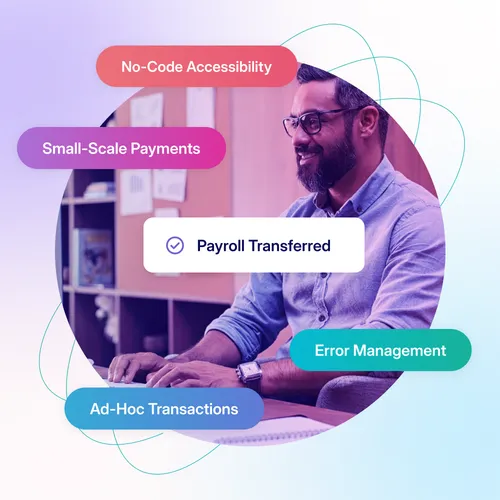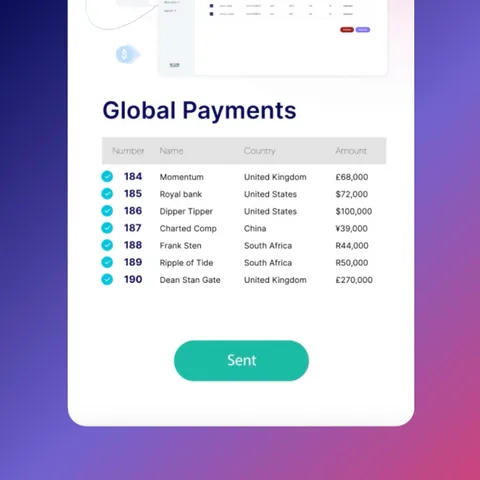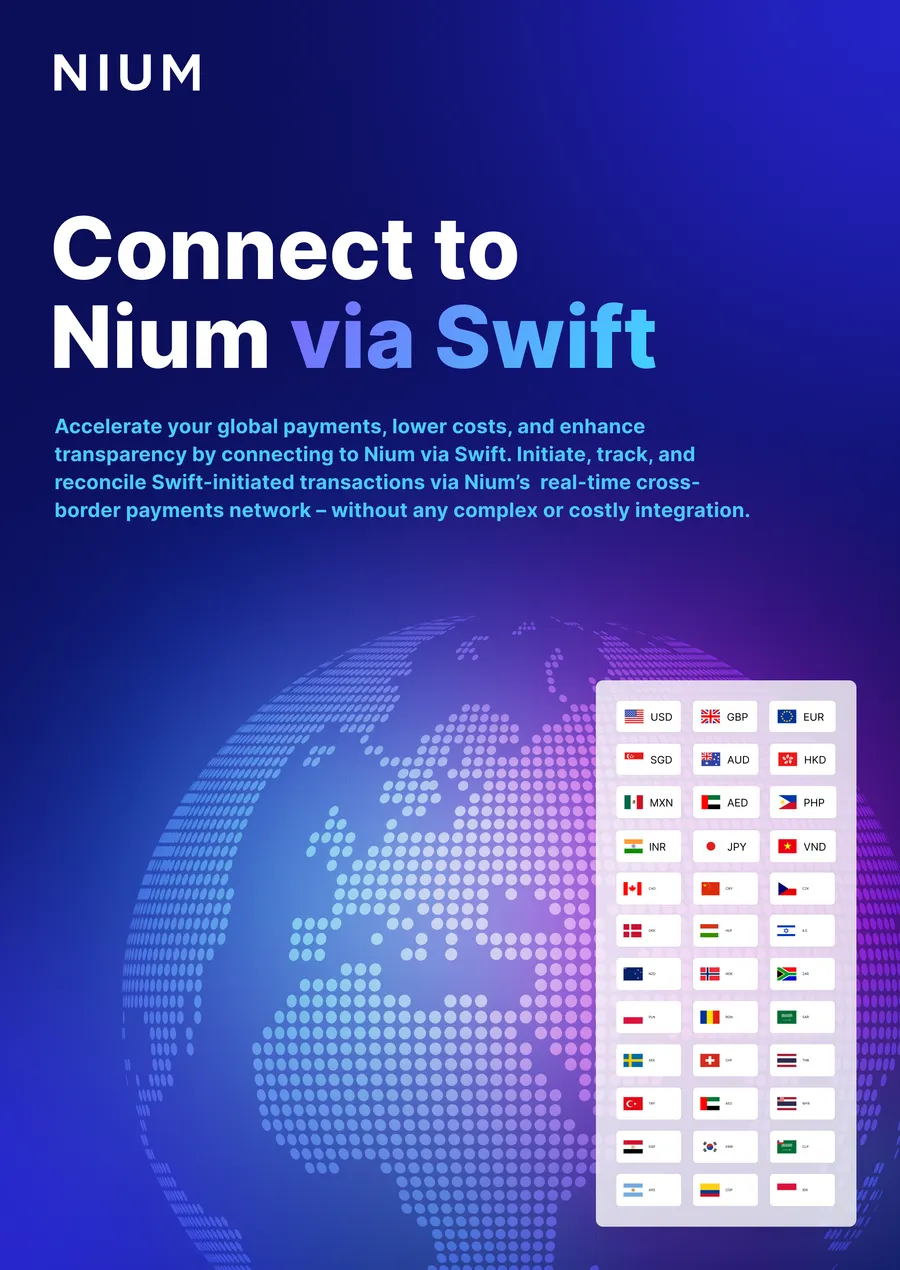The growth of the gig economy throughout the world offers significant advantages both to workers and the businesses looking to hire them. As individual companies look beyond borders to find the best on-demand worker for any given job, gig platforms have the chance to expand into whole new markets without needing to build local infrastructure, but there are still challenges to overcome, especially when it comes to cross-border payments.
In 2019, Mastercard projected that the gross volume generated by the gig economy would grow at a compound annual rate of 17.4% until 2023, but now that seems to have underestimated the rate of change. Today, some experts are predicting that by 2023 the gig economy will represent more than half the U.S. workforce, and outside of the U.S. things are moving even faster. In Malaysia, the number of workers considering gig opportunities is 20% higher than the global average. In Brazil, as well as other Latin American countries, the number of freelancers in the economy is also growing rapidly—in some places nearing 50%—and in India, the on-demand workforce is expected to grow to 23.5 million by the end of the decade.
Across every region, however, the key capability for platforms connecting businesses and talent is efficient, reliable compensation. PYMNTS.com reports that 89% of gig workers are likely to sign up for immediate payments, while more than half prefer instant payouts, but making this a reality can be challenging.
The cross-border payment ecosystem is fragmented and difficult to navigate, and so for businesses looking for a payments platform to support their on-demand workers in multiple regions, it’s essential to build the capacity for localized, real-time payments, and the provision of different kinds of pay out.
How Can Companies Build Trust with Workers?
Emerging markets such as South East Asia, Latin America, and Africa are a huge expansion opportunity for enterprises and medium-sized companies, with a wealth of available skills and a young, educated workforce. But to provide services in a new country, and build customer trust, they first have to attract and retain new workers. Payments can become a great way to differentiate the platform brand for several reasons:
Around two-thirds of gig workers are forced to use their savings to meet expenses on time, meaning unpredictable payments are one of the most common reasons independent workers switch employers. In addition, the majority of workers say they would perform better if paid faster, and a survey by Visa Insight found that 83% would even pay a fee to receive real-time payments in an emergency, while three-quarters would pay a fee in any case.
Why is Paying International Workers Still A Challenge?
From the perspective of gig platforms, different international markets require a flexible payments platform that can adapt to the needs, timelines, and methods your workforce requires.
In Malaysia, for instance, 55% of on-demand workers have less than three months’ financial buffer. While in In India, 88% of the on-demand workforce runs out of money before the month is even out. This means businesses need to be especially versatile when it comes to providing fast payments. In some markets, a majority of workers may not have bank accounts – in Mexico, the number is just 37%. And so flexibility with payment methods can also be essential to retention.
The process of paying gig economy workers also changes according to jurisdiction, creating additional complexity for businesses. Because the legal status of gig workers varies by country, gig platforms with global aspirations will need to grapple with local classifications of a contractor vs employee status, opaque tax liabilities that may inadvertently put companies on the wrong side of the law, and unfamiliar regulation that increases the chances of payment errors and reputational damage.
The variability of payment processes and licensing in different countries is another obstacle. Not many payment providers have licenses to operate in certain countries—especially in emerging markets—and platforms need mass payment systems and localized access so that gig and freelance workers can be paid as efficiently as other locals.
The final challenge is currency, with conversion creating serious headaches for on-demand workers and the businesses who want to hire them. Forex and transaction fees reduce workers’ margins, making it more difficult for platforms to attract them. And in today’s volatile global market, exchange rate fluctuations can delay payments and reduce value for recipients.
There are growing international markets waiting to be accessed, but if payments are a problem, the whole proposition loses value. Businesses need a payments platform provider that makes international payments safe and simple, but even then there are issues to look out for. Any business making cross-border payments needs a clear idea of their PSP’s cost structure, and these can sometimes show a startling lack of transparency. The more you pay a PSP to handle your business, the bigger impact hidden charges will have. That’s why it’s essential to find the right payments platform provider to service on-demand workers across borders.
The Solution to Paying On-Demand Workers Across Borders
Nium’s global B2B payment platform is built with the borderless economy in mind, prioritizing scalability, coverage, and efficiency for all stakeholders to modernize global money movement.
Thanks to an established network of direct banking partners, companies can access over 3.2 billion beneficiaries in over 190 markets worldwide. That means on-demand workers can be paid when and how they need and will be more likely to stay with a given platform.
Nium’s extensive local knowledge and established licensing agreements in eleven global financial centers also mean that businesses can approach compliance with confidence, overcoming the complex regulatory challenges of paying on-demand workers as efficiently as locals.
Nium’s on-the-ground experience aids onboarding while our APIs help optimize your development processes with modular connections that get your products up and running, quickly and easily. You develop your platform to meet the needs of your target markets and build trust with gig workers by embracing real-time payments in 100 markets and a range of payment methods including accounts and cards.
In the coming years, businesses will adapt to the growing talent available for on-demand projects and gigs, but with constantly changing regulations and shifting international circumstances, much else is uncertain. It’s a complex world, and any business looking to expand with an international on-demand workforce confidently needs global knowledge of the Modern Money Movement. Nium can help.
To find out more about how gig platforms can succeed in a changing world, download the eBook: Paying It Forward: The Future of Payments in the Gig Economy, or get in touch with a Nium payments expert for a personalized consultation.






.png@webp)



.png@webp)




